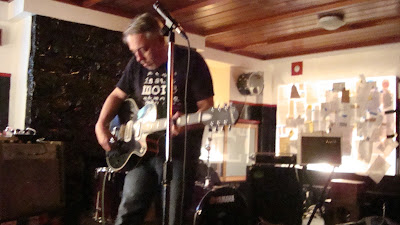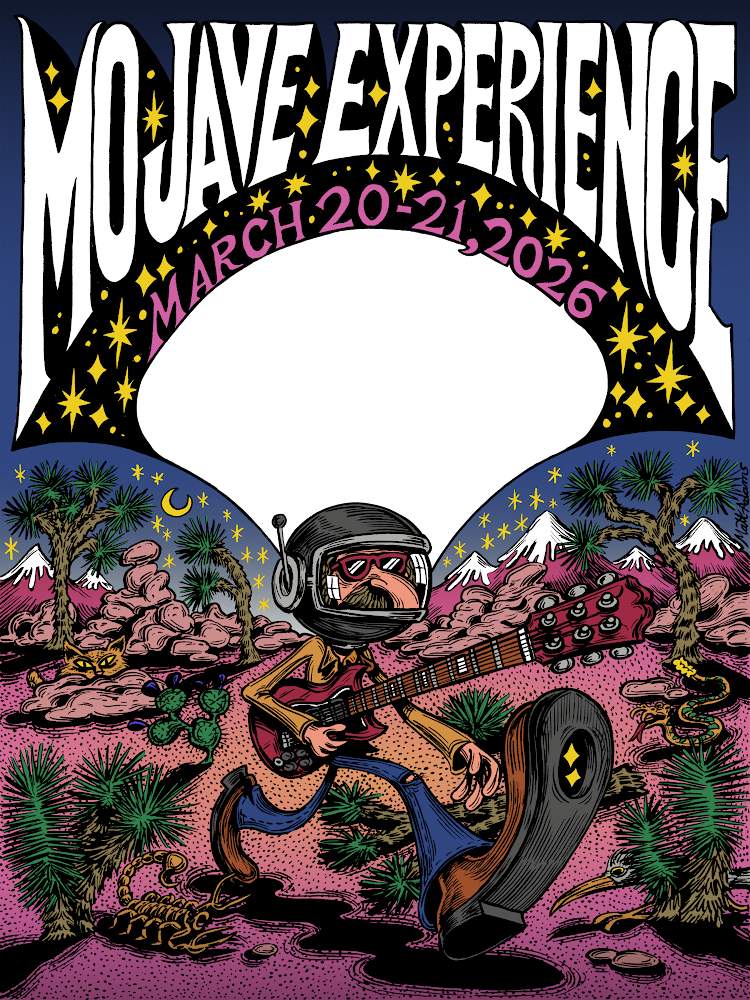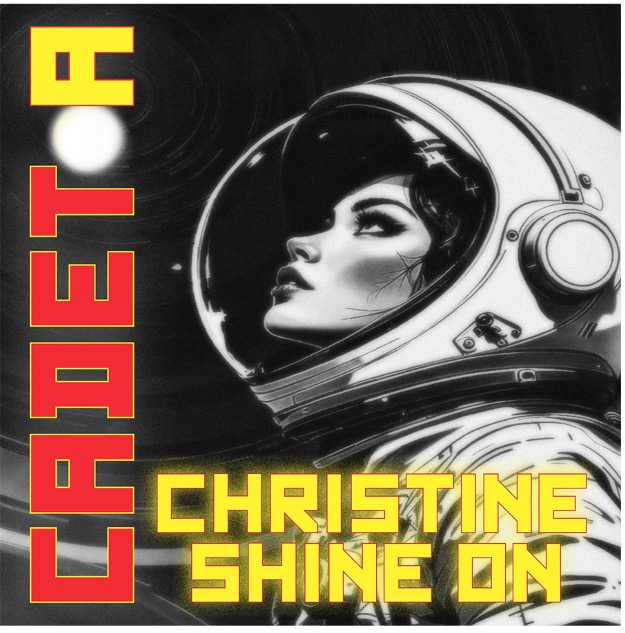Bruce Russell interview
“It’s surprisingly difficult to retain an unmusical approach to guitar playing”
Bruce Russell is the anti-Guitar Hero, preferring the sounds that any ‘regular’ guitar player tries to avoid. The title of his latest LP tells you exactly what you can expect from the music on the record: Howling And Instability At High Volume Settings. It is my favourite record of 2016.
This LP is a re-edited version of a limited edition CD, right? So why did want to re-release these recordings in this new format, in a new way?
I love vinyl and when I had the chance to realise this project as an LP, I grabbed it. The CD was mainly done for documentation of my doctorate, and was not made available for sale. I thought people would get something out of the record, it showed a development in my approach since my last guitar record, Antikythera Mechanism.
The title of the record was a warning that you interpreted as an advice. Can you explain this a bit?
The title comes from the workshop manual for the amplifier. It is identified as a fault that may develop. The manual explains how to reduce these ‘unwanted’ sounds. I thought it was hilarious because that ‘fault’ really describes everything I try to do with the amp. To me the ‘fault’ is an opportunity to do something that really uses the inherent sound of the amp itself.
What were the tools and instruments you used for making this record? Is it just: an electric guitar and an amp?
There’s a guitar and two amps, plus one or two fuzz pedals, one or two wahs, ring modulation, two or three tremolos, and some graphic equalisation.
Do you see this LP as a noise record? As a minimal record? Maybe even as a conceptual record?
That’s a good question. I don’t really want to answer it, because for me the value of the record is measured in the number of possible answers there might be to that question. It is certainly all three of those things, as well as several other things. Why can’t they all be equally valid answers? People should listen to the record and think for themselves about the meaning they bring to it.
I had a phone call with Richard Dawson earlier this year. He told me you proposed him to play your guitar when he toured New Zealand but he refused because he felt he was not in control over your guitar. But then again: not being in control is maybe the biggest kick you get out of playing your guitar (and amp), I suppose?
Richard came to my house needing to borrow an amp. It took some time but I persuaded him to use my 15 watt Concord Contessa. He was unsure but once he realised what it would do at high volumes he was sold. He was playing an acoustic guitar, and he sounded great.
Music is: variations in tone evolving over time. But what is the role of volume in music? Should this record being played loud because it’s recorded loud? Do you think one would not ‘get’ this record when it’s played on a low volume?
A certain amount of volume is required to generate feedback and over-drive valve amplification. Since 85% of what I do is described in that sentence, if I didn’t use a certain amount of volume, there’d be nothing to hear. That said, my biggest amp is rated 15 watts and probably generates about 30 watts maximum (it’s got a faulty transformer). I regularly play with guys who use one or two 100 watt amps, and I hold my own. The trick is that my work ‘sounds loud’ at any volume. You have to play the record at almost inaudible volumes for it not to sound like loud guitar. What more can I say? I have a special gift.
One of your famous quotes is: “I play the amp, not the guitar”. Again: can you explain this to me?
I refer back to my answer about the title of the album. Amplifiers are not just a way to make the inherent sound of the guitar louder (with a greater or lesser degree of fidelity), they have a sound of their own and can be exploited as an instrument. The fact that speakers and pickups work together in a feedback loop is generally regarded as either a ‘fault’ (as in the workshop manual for Concord amps) or as a ‘sound colour’. My practice takes this unwanted or secondary capability and makes it the totality of that practice.
Do you cultivate the fact that you are a limited guitar player?
Yes. It’s surprisingly difficult to retain an unmusical approach to guitar playing over several decades. People underestimate what is involved in doing a thing like that because so few people think it’s even a thing someone might do. But while you might say I am a limited ‘guitar player’ – I am an unlimited guitar user. Developing in that direction has required clear but counter-intuitive thinking and a lot of hard work.
Bruce Russell in Paris at Studio Palix 2002
Do you think that being limited as a musician helps creating an own style?
What helps me is understanding that I am NOT A MUSICIAN. I use instruments towards radically different ends from those of 99% of musicians. My career has consisted of working practically towards a new understanding of my sound practice, which is often framed as if it was music, but is really something else. In the early days my technical limitations helped me from becoming a musician, and then I was able to understand the opportunities available if I continued to reject that path.
Do you think that being limited as a musician contains the risk of repeating yourself?
That is an ironic question. Almost all that musicians do is repeat themselves, and the more accurately they do that, the better people like them. I have an approach so radically different from most musicians that your question, with the greatest respect, is almost meaningless. As I said earlier, my cultivated musical limitations are what frees me to almost never repeat myself.
– Joeri Bruyninckx
© Copyright http://www.psychedelicbabymag.com/2016
Array







